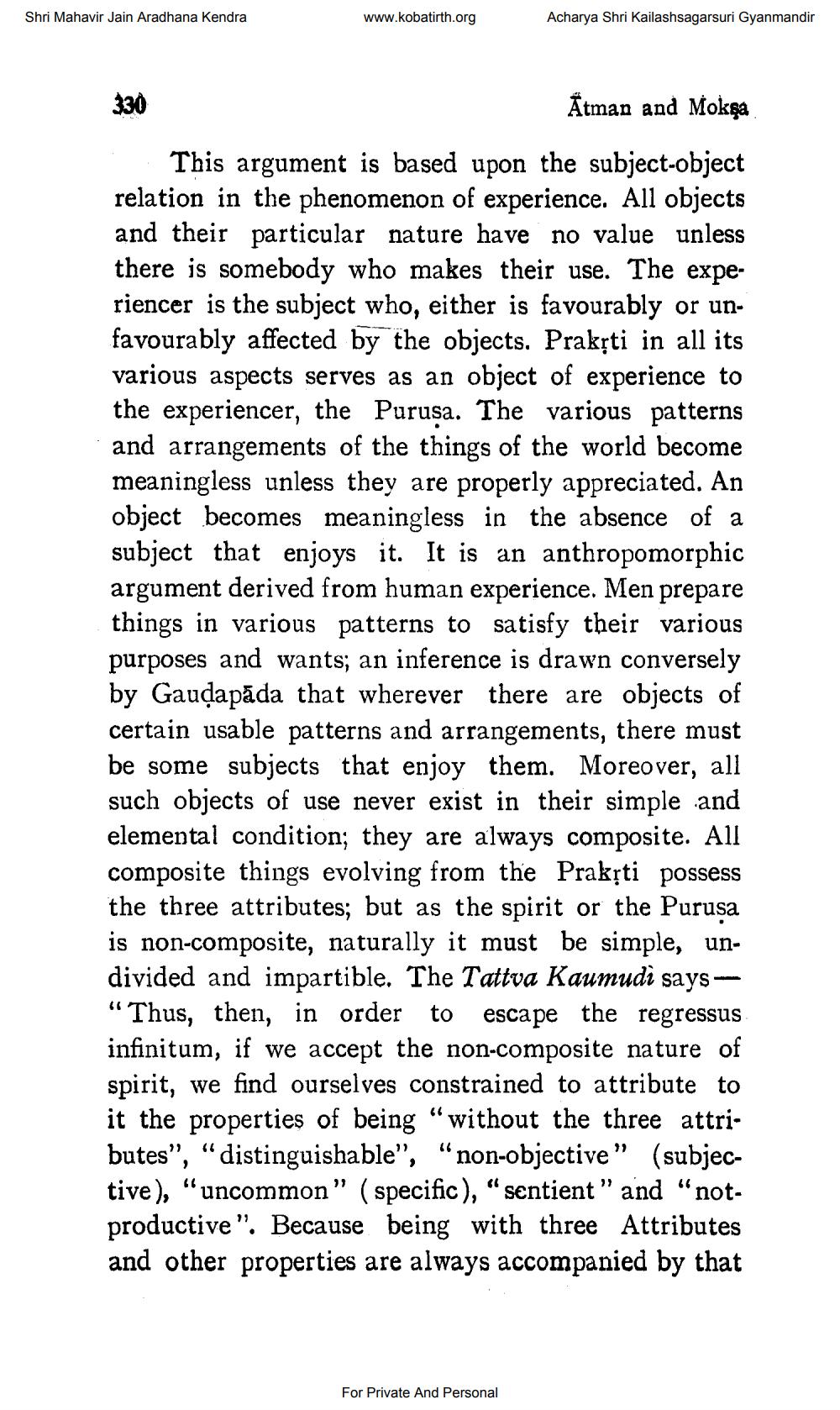________________
Shri Mahavir Jain Aradhana Kendra
www.kobatirth.org
Acharya Shri Kailashsagarsuri Gyanmandir
330
Ātman and Moksa
This argument is based upon the subject-object relation in the phenomenon of experience. All objects and their particular nature have no value unless there is somebody who makes their use. The experiencer is the subject who, either is favourably or unfavourably affected by the objects. Prakrti in all its various aspects serves as an object of experience to the experiencer, the Purusa. The various patterns and arrangements of the things of the world become meaningless unless they are properly appreciated. An object becomes meaningless in the absence of a subject that enjoys it. It is an anthropomorphic argument derived from human experience. Men prepare things in various patterns to satisfy their various purposes and wants; an inference is drawn conversely by Gaudapāda that wherever there are objects of certain usable patterns and arrangements, there must be some subjects that enjoy them. Moreover, all such objects of use never exist in their simple and elemental condition; they are always composite. All composite things evolving from the Praksti possess the three attributes; but as the spirit or the Purusa is non-composite, naturally it must be simple, undivided and impartible. The Tattva Kaumudi says“Thus, then, in order to escape the regressus infinitum, if we accept the non-composite nature of spirit, we find ourselves constrained to attribute to it the properties of being “without the three attributes", "distinguishable”, “non-objective” (subjective), "uncommon" (specific), "sentient" and "notproductive". Because being with three Attributes and other properties are always accompanied by that
For Private And Personal




